Dialogue with Ye Weichang: The Art of Balance in Humanitarian Work | Around the Fire CUHK
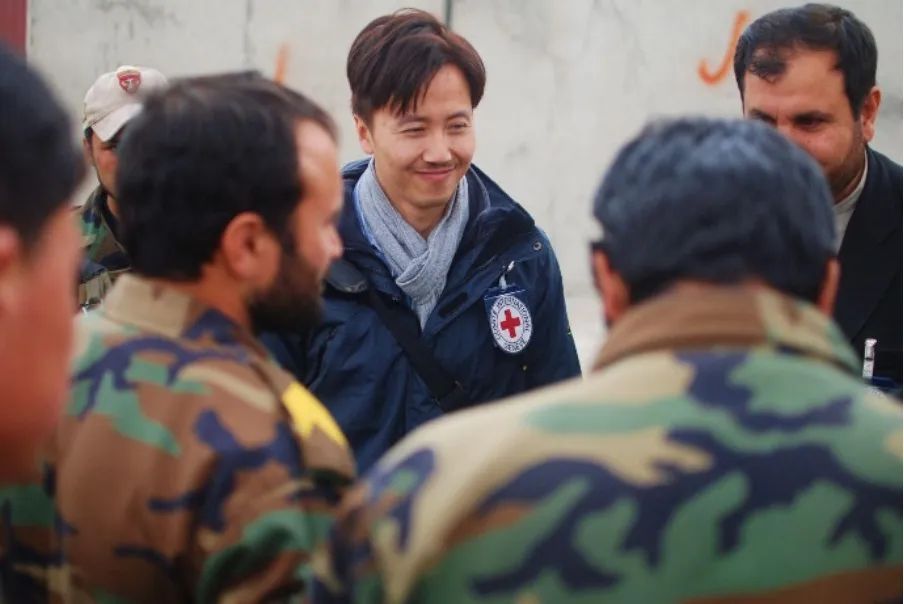
Ye Weichang, a former representative of the International Committee of the Red Cross (ICRC) abroad, has more than 6 years of experience in humanitarian work in front-line theaters. In 2019, he was transferred to the operating director of a youth-oriented and independent think tank in Hong Kong.
In the middle of the third grade class, the economic and social worker woke up and said that there are more volleyball events that he yearns for. He studied hard and entered the Business School of the University of Hong Kong. He graduated in 2004 and joined the investment bank Goldman Sachs Group. After the agreed four-year working period arrived , resigned and went to Japan to study for a master's degree in international relations. In 2009, he applied for the ICRC and was rejected due to his poor French. Later, he worked in the Hong Kong Red Cross and went to study in France. In 2011, he applied for the ICRC again and was accepted. , Syria, Myanmar and other places, experienced the Israeli bombing of the Gaza Strip in 2012, the bomb attack on the ICRC office in Jalalabad in 2013, the Taliban abduction of Afghan teachers and students in 2014, and the refugee crisis in western Myanmar in 2015... .Have attracted media attention for organizing the rescue of 33 kidnapped teachers and students in 2014. In 2018, he was named "Top Ten Outstanding Young People in Hong Kong".
Looking back on his years of experience at the ICRC, Ye Weichang believes that humanitarian work is an "art of balance".
1
Balancing ideals and reality
1. When you were growing up, who or what had a great influence on your international vision?
Ye Weichang: The atmosphere of the University of Hong Kong had a great influence on me. After I went to the university, I felt that the world was very big and Hong Kong was very small. At that time, I read the book of Hong Kong war correspondent Zhang Cuirong about refugees and war life around the world. That's when my focus on international issues started. Later, when I was a sophomore in high school, I had an opportunity to go to a slum in Kenya to do a commercial poverty alleviation project.
When I went to Kenya, I found out that the world is really big. At that time, I lived in a slum, where the sanitation environment was poor and the life was extremely poor. I saw the disabled little girl in the neighbor was locked out by her parents who went to work, and she could only lie in the water when it rained, and her skin was exposed to the sun. All cracked. I started to ask myself if the problems in Hong Kong are the world's problems, or is it the world's problems that they have in Kenya, are there more people in the world living like them or more people living like us life. I found that people living below the poverty line are the mainstream of the world, so I began to think about what education means to me. My parents studied for the upper class, and my generation should be different. At the time, five other interns from other countries said at the end of the internship that they wanted to go to an international institution to deal with these issues after graduation, and wanted to be a diplomat to coordinate country-to-country issues. This made me reflect on why I read books for so many years, except for Accounting firms, banks and real estate companies don't understand anything, and I feel that my vision is very narrow. So suddenly there was an idea, I hope to have the opportunity to play a role in these issues. But at that time, I knew that I could not change the trajectory of my life immediately, so I started to make a five-year plan in 2002, and I began to choose problems in different places to read books and study, hoping that I could meet the requirements for entering international institutions after five years, such as having a very good A good postgraduate degree in several official languages recognized by international institutions.
2. I think what you said is very important, only ideals are not enough, but also planning.
Ye Weichang: Yes, planning also plays an important role. When I was twenty-four or five years old, many people asked me what to do if I failed to pursue my dream. I think this five-year plan provided me with a way out. In addition to the degree and language I mentioned before, my plan is to improve my maturity, so after graduation, I worked in a bank and participated in many social activities, taught in prisons, and participated in related activities when the WTO came to Hong Kong. If I fail to get admitted to an international institution in the end, I can find a job with this resume. Of course, the final result of every decision is to be borne by oneself. Since I choose to leave the bank to experience many different experiences, the material life will naturally be reduced a bit, but isn’t it the same if life is simpler? The important thing is that in my life The most motivated and youngest stages are seriously lived through.
3. You worked in an investment bank for a few years after graduation. Did this experience help you in your later humanitarian work?
Ye Weichang: I come from an ordinary family, so I have to think about how to balance my ideals and the life of my family, so as to avoid my dream becoming a nightmare for my family, so after graduation, I first went to work in an investment bank, and at the same time, I was preparing for a graduate school. There are economic reasons. But working at Goldman Sachs also gave me maturity and a different way of thinking about dealing with problems, which helped me a lot in my judgment and management decisions in the future.
In 2012, a war suddenly broke out in the Gaza Strip. The situation was very tense. Many things had to be deployed. Relief supplies from all over the world came in every day. Every day at the Geneva headquarters in New York, donors and the media want to see how much you are giving and how transparent the funding is. However, the logistics volume of the relief materials is very large, and many checkpoints may be stuck during the transportation process. There are many changes in the volume of goods before and after. I am used to the rapid changes and data problems in the bank, and I quickly input the data in Excel. After the messy reports were counted, they were immediately sent to the headquarters, and my boss changed his opinion on me. In addition to being enthusiastic, I found that you have some solid skills, and you have logic and methods for managing things. So I think that sometimes the path to pursue a goal does not have to be a straight line. It took me five years to take some detours, but in the end I found that I walked faster than my colleagues who joined at the same time. It was the detours that accumulated the experience in those five years. Sometimes life is like this, you never know how your path will go, the important thing is that when the opportunity unfolds in front of you, you grasp it well, learn the most important things, you don't waste each stage, they Adding up may reveal the path you want.
2
Humanitarian work around war
4. In addition to the International Committee of the Red Cross (ICRC), the more familiar international organizations are MSF and the United Nations system. In your opinion, what is the difference between the three?
Ye Weichang: Doctors Without Borders is a separate organization established by the predecessors of the former ICRC. I put it in the category of NGO (non-governmental organization). The United Nations is an international organization with countries as the system. The ICRC is in the middle of the two systems. It does not belong to the United Nations system, but it has an international character because it was established by the members of the Geneva Convention and signed the laws of war (Note 1). It is also not an NGO, because if there is no These state authorizations cannot be established. The way it makes decisions is different from that of the United Nations. The United Nations raises the hands of member states, and then the most important country decides. However, the logic of the operation of the ICRC is that countries sign the Geneva Convention (Note 2), hand over power to the laws of war, and then the ICRC will Operates in accordance with the laws of war.
5. Compared with them, what are the main advantages of the ICRC?
Ye Weichang: Compared with the United Nations, the neutrality and independence of the ICRC allow it to take the lead in front-line work. The United Nations is said to be powerful, but as far as war is concerned, the world is nothing more than fighting between member states of the United Nations, or non-member states of the United Nations fighting against member states of the United Nations. Suppose that on the front line of the war between Syria and the Islamic State, a United Nations employee came out and told the Islamic State that we are deploying resources to protect the victims for the sake of human peace. He would think that you were sent by the government, why should he believe you? Unlike the ICRC, the signing of the laws of war by member states means handing over power to the law and maintaining the independence of the work of the ICRC. At the same time, the ICRC also let non-governmental armed organizations know that all work is carried out according to the law of war. If they do not believe in the law of war, then talk to them about moral and ethical relations, let them know that we are neutral, and we will not deliberately comment on any political or war actions. , dealing only with the humanitarian consequences of war. For example, I can take care of your wounded and sick, but at the same time you have to allow me to take care of the wounded and sick on the other side of the war, and if you hinder me from dealing with their civilians, when we have to deal with the humanitarian needs of your civilians, others will too. hinder us.
This is ideal, but in reality it takes a long time to build trust, and they will see if this organization really doesn't take political stances into consideration and treats us the same way or other troops are injured. When I was working in the Rohingya area of Myanmar, there were conflicts between Buddhists and Muslims. Every time I went to a Buddhist temple to meet a monk, I hoped he would persuade the Buddhist people to calm down. After I came out, the Muslim tribes would say why do you always Times will go to their side first, not ours first, so pay attention to these details. The neutral image of humanitarian agencies and trust with the region is built up through every action and every decision, not verbally.
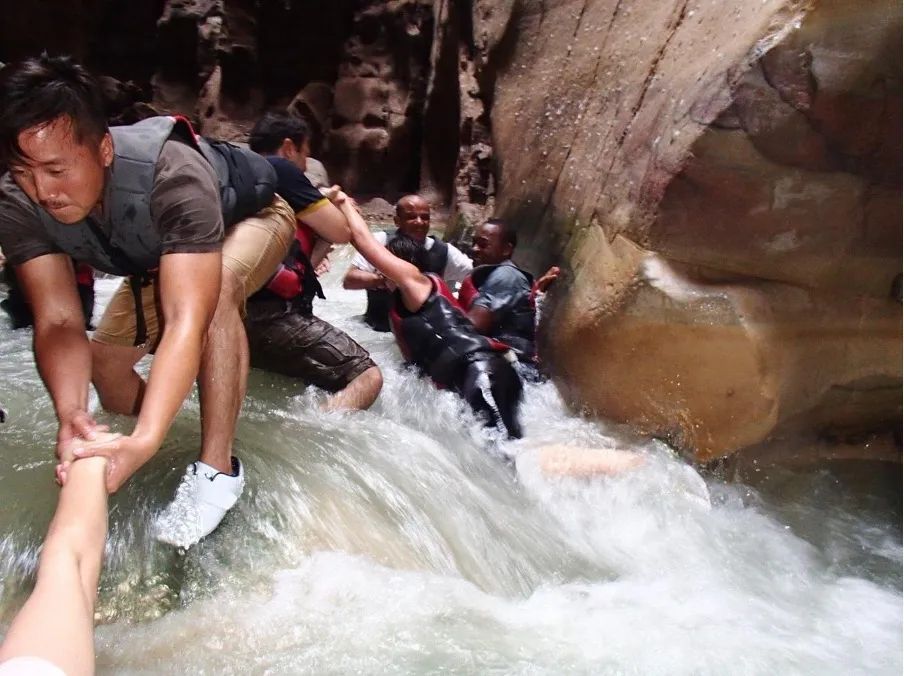
Compared to Doctors Without Borders? They are very important, and many functions cannot be achieved by the ICRC, but there is a limitation in their operations: if the war you are facing is a system-to-system fight, or a system-to-system fight, and MSF The institution is outside the system, and the system can say why I want to talk to you. This has happened in many countries, so there needs to be an institution that can play a role outside the system and inside the system, and can connect both sides. In addition, many NGOs have adopted the method of public protest and criticism, hoping to exert pressure on armed military operations. This method has its effect, but in many cases, it cannot solve the problem and can no longer push the government or armed organizations to respond. The experience of the ICRC for more than 160 years tells us that this is not the only way. You have to deal with civilian affairs in such a complex political relationship, and you have to have many different strategies. Sometimes it may be necessary to close the door, and in the case of high confidentiality and trust, discuss how military operations can avoid harm to civilians as much as possible. There are many small relationships established and run-in, and the ICRC has played this role.
6. In December 2016, the United Nations Security Council held a vote to implement a seven-day ceasefire agreement in the conflict in the Syrian city of Aleppo, but it was not approved (Note 3); the ICRC also proposed humanitarian aid to the warring parties in Aleppo A cease-fire for several days in order to evacuate civilians and the wounded and sick was granted (Note 4). Why did the UN fail and the ICRC succeed?
Ye Weichang: Originally, the role the United Nations should play is to come out and settle things in controversial situations, but every time the interests of big and small countries are involved, it is difficult to play a role. The United States did not fight Iraq, and the United Nations also decided not to fight, but in the end the United States still wanted to fight. The ICRC is different. We tell the conflicting parties on the front line that you have always cooperated with us and know what we want. I will not interfere in your wars, but you let me leave with civilians and people who do not want to fight. This was the case in Syria in 2016. We evacuated the last civilians in Aleppo as much as possible, and the United Nations also participated, but I don't know exactly how. The sensitive point at that time was that some of the civilians might have fought for the Islamic State in the past but not now. The government hoped that all those who had participated would be identified, but the spirit of the law of war is to separate combatants from civilians, and non- The fighters let him retain the right to live, and how will the trial be held in the future? The ICRC is coordinating inside. I hope that civilians who were not involved at all will not be trapped and suffer together because of some unclear things.
7. What do you think of the effectiveness of the law of war?
Ye Weichang: The current way of fighting conflicts makes the role of the law of war less and less. In the past, conflicts were mainly based on countries, so there was a set of rules for war between countries. The law of war is an agreement between countries. When countries respect each other's agreement, it can play a role. On the contrary, Its status declined. War now can be ideology versus ideology, it is not a country, and it does not agree with what you signed out of your country's system. Therefore, for ICRC colleagues or NGO friends, the biggest role of the law of war on the front line is to protect, because It stipulates that humanitarians are protected and that those marked with the red cross should not attack them. Then everyone began to doubt the existence of the law of war, especially for those non-state units and organizations, they just can't respect you according to the law of war. At this time, we can only rely on establishing relationships and reasoning with these organizations, hoping that they will understand that this is going on for them. Existence is not good either, it's better for them to have more room to live. Then the government will say that this is not helping these organizations continue. If the ICRC does not exist, they can directly deal with it by tough means, but this will also affect their international image. Therefore, each side is trying to find a balance between the pros and cons. We, too, try our best to hope that everyone respects international law. When there is no way, we must rely on ethical and moral relations.
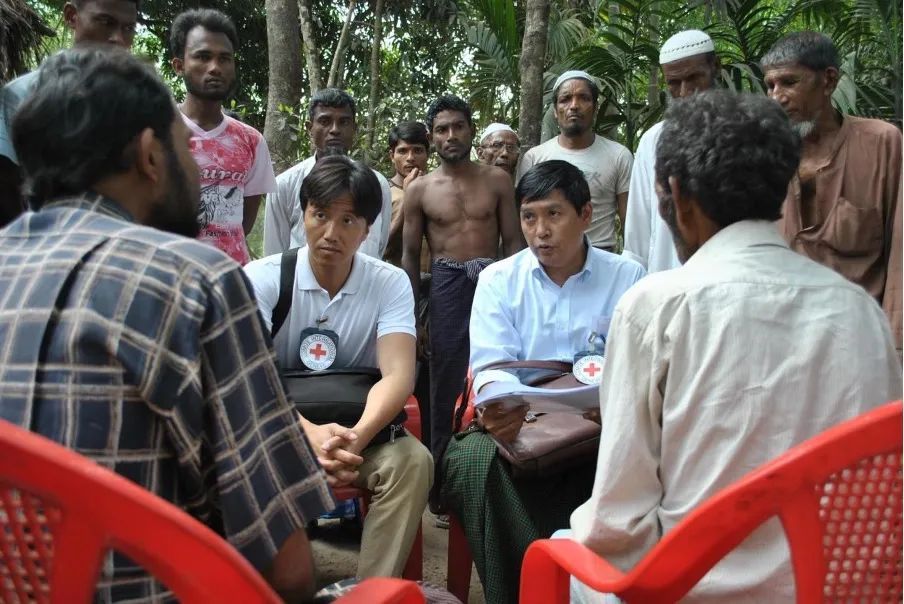
On the front line, if you apply the so-called Western concept of humanitarian law to the local area, they cannot digest it, so our colleagues will study the cultural rules of each tribe and try to find common ground from the spirit of humanitarian law and the charter or religious dogma of local organizations. point. For example, people shouldn't be harmed, and the spirit of separating the good from the bad will always be there. It's easier to say that. What I felt at that time was that human beings are equally beautiful and equally terrible, no matter what religion or language you are, every cultural system will have a part that teaches people to be kind, but in the face of complex life or conflict of interests , these wonderful teachings will be left behind.
3
Neglected needs in frontline areas
8. Your job includes monitoring the treatment of prisoners of war. Do you have the most memorable one?
Ye Weichang: I visited a prison in Afghanistan, and there was a person who was locked up for more than three years and did not come out for a day. After the door was opened, the room was completely dark, with only a small window at the back, and on the brick wall, I couldn't see the man at all. When he stood up, I felt a very tall man standing in front of me, suddenly he put his hand on my shoulder, my assistant thought he wanted to attack me and wanted to pull me away, I said Billa (assistant name), no. Because I felt his hands on my shoulders not aggressive, weak, and still shaking. Then he stood there crying for 40 minutes, and finally said something that shocked me. He said he hadn't felt the temperature of his skin in a long time. I just thought, how can a person feel how nostalgic the temperature of the skin that people are in contact with. The biggest impression it gives me is that people don't need too complicated things to be happy. Sometimes what they want is the warmth, communication and care between people. The simpler things can touch people's hearts.
9. When it comes to people's needs, what do you think are the needs of frontline residents that we ignore?
Ye Weichang: Let me say very truthfully that people in the frontline areas need a lot of supplies, such as houses, food, water, and medical care, but these can only relieve pain, because they cannot fundamentally solve the problem of war. Then what is the most important role for us foreigners? My local friends told me that it is to let them know that the world has not forgotten them, and the most fearful thing for those who have lived in turmoil for a long time is isolation. I wrote an article on Afghanistan last year, which discussed such a thing, that is why the Taliban will come back, as if the Taliban will not exist after 2002, and then 2021 It suddenly appeared again in 2002, but for the people of Afghanistan, after the Taliban lost control of Afghanistan in 2002, they still lived by their side, and the war and conflict have not decreased at all. We live in a big city, the so-called people who know the most about the world, do not continue to care about those who need help. In fact, they still have a lot of unsolved problems, so for the local people, in addition to materials, it is very important to continue to pay attention.
The needs of the disaster victims have different answers in different times. Many times, when we serve the local people with stereotypes, it is easy to hit the board. During the Syrian refugee crisis in 2016, I dealt with refugee issues on the border between Lebanon and Syria. At that time, every time we received a report of refugees coming from northern Syria, we prepared all kinds of materials and waited for that group of people, but when the refugees came to us, they The first sentence said that the thing you want is WIFI. Because Arabs generally live together as large families, some people walk fast and some people walk slowly when it is difficult. Those who arrive hope to tell the family members who did not arrive as soon as possible to avoid conflicting places on the way, or simply say I am here, You're going to get through to the end, we'll meet in a refugee camp. Our general needs on the battlefield are intuitively food. If it is a short-term battle, these items can meet their needs, but when the war is continuous and the time is long, many spiritual or emotional needs are easily destroyed. Ignored.
4
Balancing multiple interests
10. What part of your work has received little attention from the outside world, but is actually very important?
Ye Weichang: Many people only see the care and assistance of the disaster victims on the front line, or we deal with very urgent situations. I think there is another work to be done that few people do and do not understand. The number of wars in the world, the number of people affected by disasters and the number of refugees, is the highest point in human history. But at the same time, our private enterprises are very developed, and they can allocate a lot of resources and solve many problems. They can solve many needs on the front line with a little simple technology, making the distribution of humanitarian aid simple and effective. But a lot of times, companies' understanding of humanitarian work is that they need love, water and food. People in the humanitarian industry see companies as devils who make a lot of money and do nothing. I think it's time to connect them so that people on one side don't demonize the other, and people on the so-called devil's side don't romanticize humanitarian work. Taking myself as an example, my work experience in the bank has helped me the most in frontline work, so I think companies can donate technology in addition to donating money. For example, it is popular to use drones to deliver food during the epidemic. We often encounter road blockages, landmines or other situations on the front line. Many civilians cannot go where they want to go, so drones can play a role here. At that time, we cooperated with Philips in the Netherlands to allow hospitals that lacked materials and equipment to use locally easily found materials in Africa to make simple earpieces that can hear the heartbeats of pregnant women and children. In fact, private enterprises have many possibilities that are not used to help solve the world's problems. After all, they are also a member of the world's problems, and sometimes they indirectly increase the gap between the rich and the poor, so they donate their technology to society. useful.
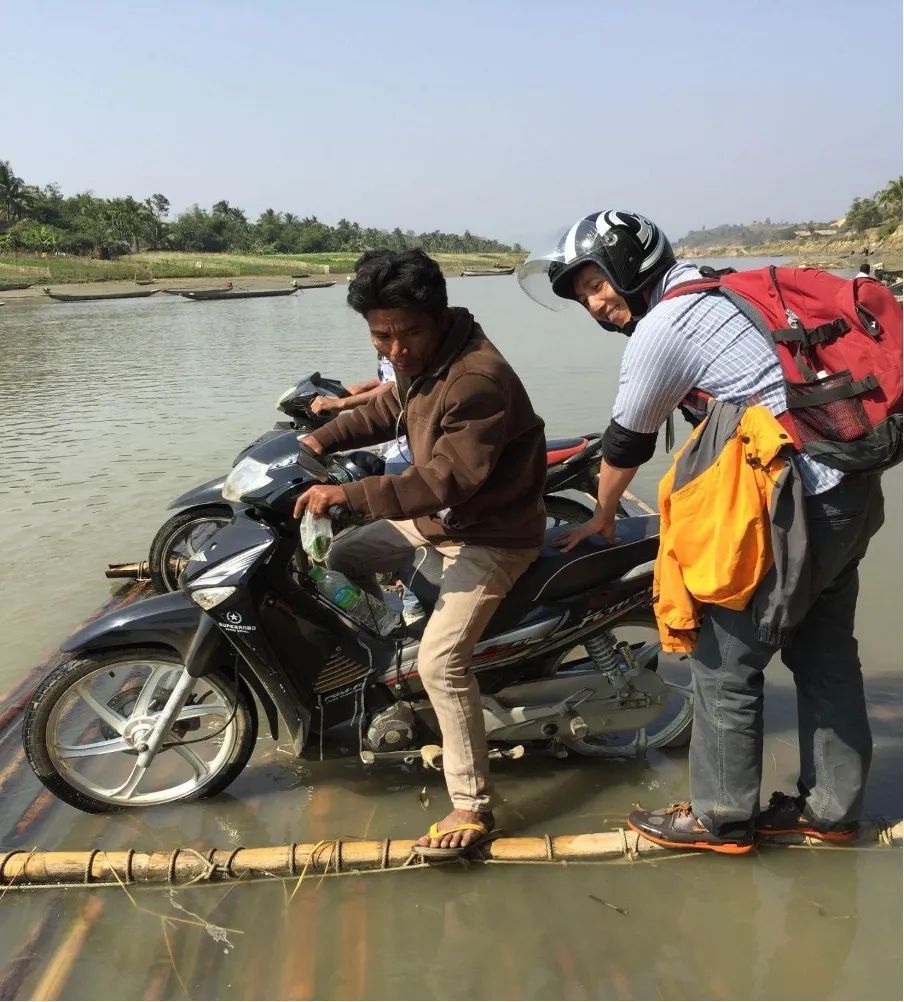
But in many cases, enterprises may also encounter a problem, that is, international institutions do not accept the new technology of enterprises, because the system cannot immediately accept these things that are different from the conventional ones, and the administrative staff inside may not know how to deal with them. I think this is another kind of battle. In my entire humanitarian work, you see real armed conflict, and also the conflict between human inertia and innovation. The technology and working methods used by humanitarian agencies on the front line are still very primitive, so I encourage those who are interested in this industry to work in the business world for a period of time and introduce the latest management or hardware technology into this industry.
11. In your opinion, what is the reason for the slow pace of innovation in international institutions?
Ye Weichang: International institutions do have room to innovate, but at the same time they must also consider the difficulties they face on the front line. Putting a new thing in a conflict place involves many interests. Taking drones as an example, international agencies need to consider who will manage the drone and who has the right to own the drone. When humanitarian personnel go to a place where a war is fought, they are actually changing the local political relationship and interest relationship. If an organization has the right to let you in, that organization will be very powerful in the hearts of their masses, so why are there many different people in the local area in the end? To build a relationship, it may be that the local people give them a little benefit behind this. What you need to pay special attention to is that every little action you take will change the ecosystem of the local community. Whether this change is good or bad is hard to say.
When I was in Myanmar, it was a conflict between Rohingya and Myanmar Buddhists. The Myanmar government suppressed Muslims. More than one million Muslims were stuck in a refugee camp. NGOs from all over the world came to help. The Rakhine State is the poorest area in Myanmar. After five years of efforts by all NGOs, the lives of the Muslims who were suppressed in the refugee camps were better than the lives of the Buddhists who were not suppressed outside. Balance, and in the end burn down the offices of international agencies. You can blame those Buddhists for being ignorant, they are indeed barbaric, but at the same time, the NGOs of that era were also ignorant. In the end, it's not that the government doesn't let you serve those Muslims, it's that the local Buddhist people don't want these foreigners to come in. You really want to help people who are under political oppression, but since you are fighting for humanitarian space, you must balance all interests. This is something that everyone thinks less about. Sometimes we donate money to the most victimized people in a certain area, and feel that they are the most pitiful. Is this really possible? Take Myanmar just now as an example. People in the outside community are just as poor. Can you really not pay attention? So humanitarian work requires balancing a lot of relationships, which is not taken into account when the outside world romanticizes the industry.
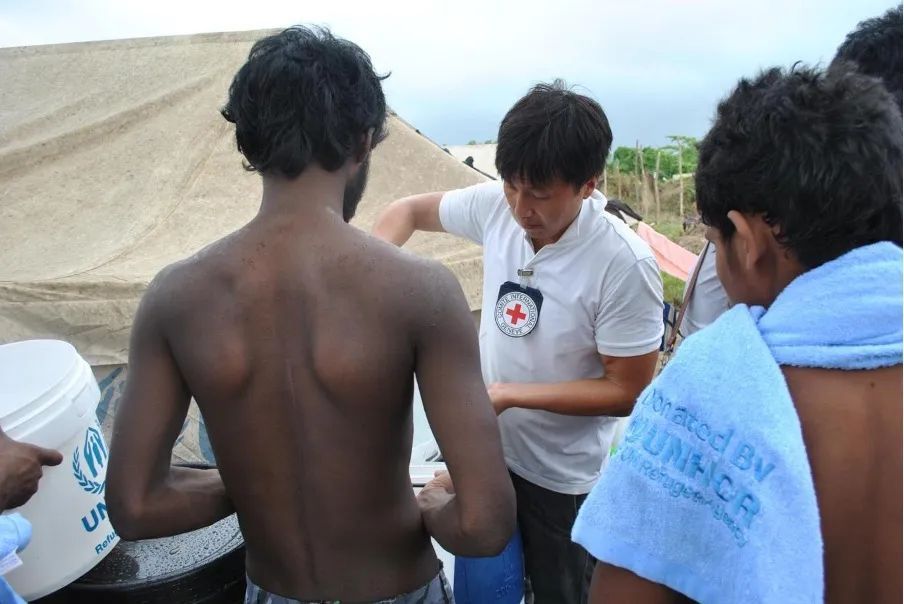
5
The challenge of humanitarian work
12. As a minority of Asians in the ICRC, does this status have any impact on your work?
Ye Weichang: There were indeed very few Asians in my work, but I think Asians have an advantage in this work. I was dealing with conflicts in one place. When I was leaving after work, the governor of that place came to meet me and said that you were the first Asian who I cooperated with in an international organization. It was very different from your foreign colleagues. They came I often point out that you are not doing well here, and you are not doing well there. Of course I know what I have done wrong, but I have a political mission, and I have to work like this and I can't help it. I am more accepting of your way of dealing with problems. You can try to consider the overall situation, balance the roles of your organization and ours, and find a way to coexist, so that everyone can go down the stairs. I think such an Asian way of thinking is very good. .
13. What is the biggest challenge for you in humanitarian work?
Ye Weichang: In addition to the respect for international law I just mentioned, it is necessary to balance the relationship between many parties. I think the mentality of humanitarian workers is also very important. Many people fail to respect the local people and work with the savior mentality of the first world helping the third world. They feel that the local people are stupid or something, but in fact the local people do not want to communicate with them. The longer I work in this industry, the more humble I feel. I have a young team in Afghanistan, four young men who can speak English and many different dialects. With such a low level of local education, their family backgrounds must be very good. . Once I was working with them in the field, and when I changed clothes, I saw that each of them had at least one bullet hole in their body. I felt pain when I saw it. I think for these people who have experienced life and death, we are just because we were born well, went to a good university, and have the honor to be their so-called leaders, but do we have as deep an understanding of life as they do, we know what can be true Can we help them? In fact, all we can do is to relieve pain. They have a deeper understanding of life and know the needs of the local people better.
Many times I feel that they helped me see through human nature and the truth of life, and it was they who saved me. The first time I encountered a conflict in Palestine, there were tear gas everywhere, and my local colleagues took my hand and ran with me, teaching me where to hide. So whether you enjoy the job or not, whether it can bring a good influence, whether it helps the local people, your mentality is very important. If you just take it as a job and think I have the ability to help people, I think it's the wrong first step, instead, if you want to go through a phase with those who are in trouble, try to help them with pain, etc. There are better times to solve fundamental problems, and this is the right first step. When you can't stand with those people, you can't help them deal with bigger problems.
6
Balancing Help and Reality
14. You are negotiating with an armed organization at zero distance, are you worried about your personal safety?
Ye Weichang: If you ask me now, I will look back and be worried. But at that time, I wouldn't feel very worried. First, if I was worried, I wouldn't go. Second, if you felt that it was part of the job, the gun in front of you was like a computer in front of you, like the office often something encountered. Of course you will be careful, after you have dealt with for a long time and established a relationship, when everyone agrees to meet, if you believe that there is a degree of trust between you and him, he will not mess with him, then you can sit there. This is also a test of your courage, and the other party is also judging, whether you believe it or not, he put the gun there for safety but won't do it. If he realizes that you don't believe it, he will say that you don't believe me, but you may also make mistakes if you believe it. , he may also kill you. There are a lot of judgments about human nature and the things around them.
Therefore, I do not encourage students who have just graduated to enter this industry, because their life experience is relatively low, and there will be errors in their judgment of human nature. Instead, I encourage everyone to experience different industries around the world, meet different people, and have more life experience. to do this kind of work. Because if you misjudge on the front line, you put not only your own life, but the lives of your colleagues at risk.
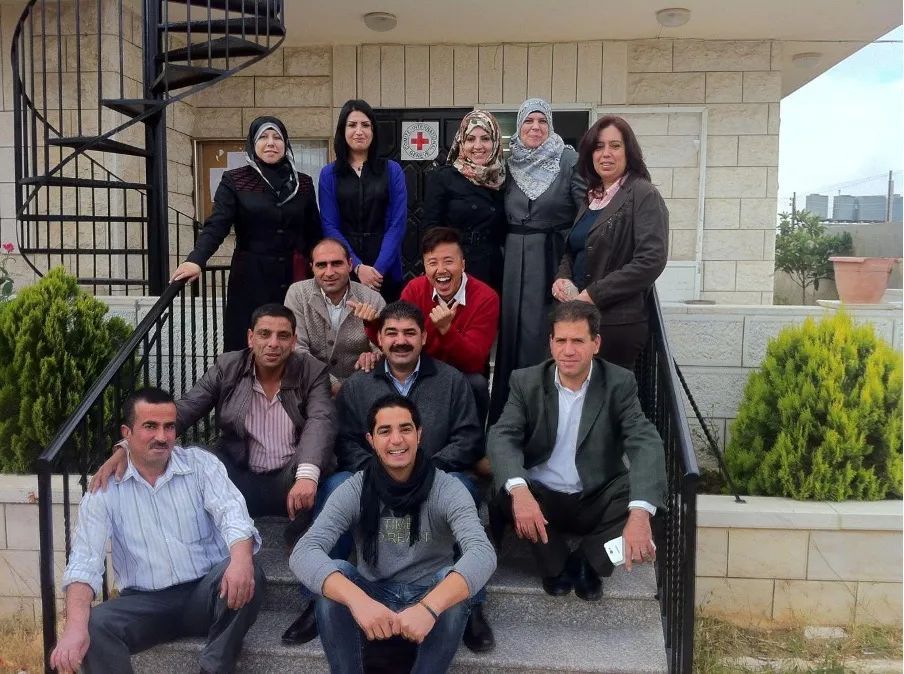
After I experienced a car bomb, my boss sent me to Dubai because I was in a state of extreme stress. When I came back, my boss said, I know you work hard and you will do well in any job, but I am afraid of you When I make a wrong judgment because of mental stress, I have no ability to bring you back. He went on to say, you have to know that there are five Afghan colleagues under you, and each of them has five people at home. If these five people die because of your misjudgment, 25 people will be without food at once. Because there are not many jobs in Afghanistan, many times only one person in a family finds a job. So sometimes I see young humanitarians who have to be heroes when they go to the front lines, go to the most dangerous places, and pull their local colleagues along, and feel a little irresponsible. We need them to work, but there is a degree. Of course, it doesn’t mean that we don’t do anything because of family concerns, and we don’t help what we want to help, so here is another balance, balancing the impulse to help people and the actual work. Happening.
15. Working in a high-pressure environment, how do you adjust your psychology? Do you feel powerless when faced with unsolvable problems?
Ye Weichang: There are so many problems every day, you can't solve all of them. When many disaster victims have needs to stand in front of you, you can't handle each of them in a humane way, and you are also helpless when your colleagues sacrifice. But you have to think that it is those countries who advocate peace and those who start wars. What you do at the bottom is actually useless, so first of all, you must be open-minded. There is hope for mankind, and the solution may not be yours. Times come, but you have to do everything you can to keep these people alive and wait until the best times can solve these problems. Second, my personal way of dealing with stress is to chat with my colleagues at night when they are happy and when they are not happy. This is very important. The third is that I keep in touch with my family every day, which can help me get rid of the tension in the front line.
7
balance your life
16. Have you ever thought about giving up in the middle of the journey? What made you persist on the front line?
Ye Weichang: No. I ask myself a question, I come from such an ordinary background, my parents have not graduated from primary school, I am just a house boy in Hong Kong, I can have the opportunity to stand in front of Aung San Suu Kyi, the Prime Minister of Afghanistan, what other jobs can I get to do this? This is the first. Second, every time we send to a point, we have to work hard to familiarize ourselves with the local religion, history and politics, so it is like reading a new cultural and political study every two years, such as Afghanistan studies, Israel studies, Burma studies, which Having a job can give you so much motivation to keep reading. And the last point is, as I often say, a person should live well for himself, but if living well for himself can also bring some benefits to the lives of those in need, who doesn't want to, who Don't you want to go beyond your own life to influence others? I think this job fully satisfies these points.
However, the only bad thing is that you sacrificed your family. When you were the youngest and most motivated, you were not around your parents and boyfriends and girlfriends. When you come back, you may be old and mentally exhausted. You are willing to live in your life. How much time it takes to go through these stages requires you to balance the needs of you and your family. No one said that humanitarians should sacrifice themselves to contribute to the world, so you can contribute to the world in your whole life, or five or ten years, I don't think it's a problem. Of course, for humanitarian work to be done well, the support of the family behind it is very important.
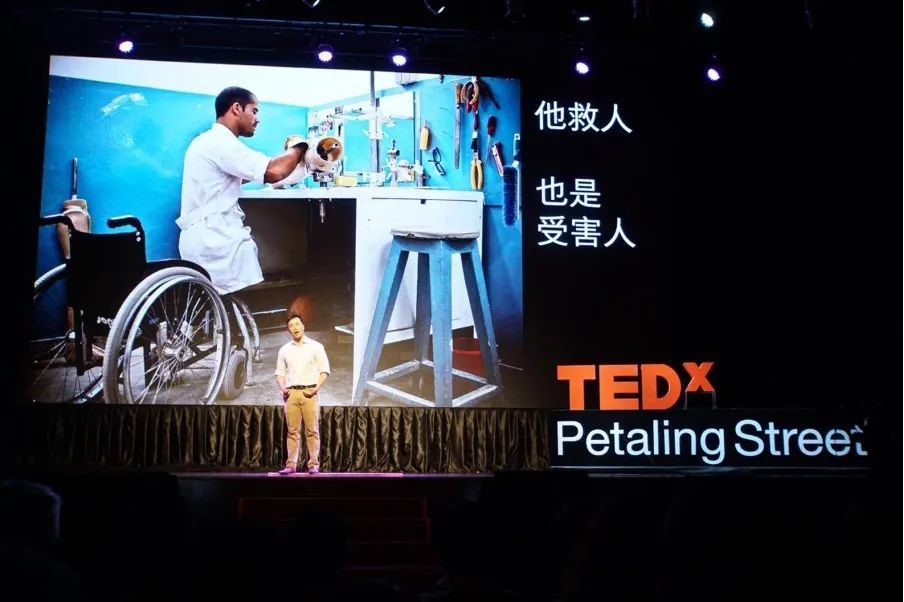
Seventy percent of my stories are lucky; another twenty-five percent is the help of many people, Mr. Zhang Cuirong, many of my teachers when I was studying in France and Japan, and my friends when I had no money. Support me, many mentors taught me how to arrange a five-year plan; the last 5%, 3% are my family members, my mother did not encourage but did not hinder me, my sister taught me as early as possible when I was young Plan your life, don't delay, she told me the mistakes she made, hope I spend less time on those mistakes; the last 1%, 2%, 1% is the so-called effort, and 1% is magic , is a lot ingenious. Many people joined this industry, and nothing happened in the places they might have been sent to. I spent a few years in such a bland way. It happened that my entire trajectory was in the most chaotic times in Afghanistan and Myanmar, so everyone thinks my story has something to do with it. content, but my luck is built on the grief of many people. I don’t know why I feel this. It happens that the whole story happens in this 1%, I don’t know what factors are combined. So you ask me if my whole story can be owned by me alone, no. I am willing to accept this interview because I feel that leaving so many experiences, reflections and experiences to myself will waste the existence of these experiences.
17. What advice do you have for young people who are interested in working in international organizations?
Ye Weichang: There are several ways to enter an international organization. The first is the national escort, which requires you to be a civil servant or a person in the Ministry of Foreign Affairs, and usually a middle-aged person. The second is to test long-term contract employees, but there are only a few international organizations, and the number of contract employees is very small. All over the world, they apply for the test, so there is a lot of competition. In addition, in the United Nations system, there are many consultants, that is, temporary contracts. The contracts are renewed every year, every three years, or even every six months. The treatment is average and the competition is great. Most of the Interns in international institutions are unpaid, because they don't have to worry about lack of talent, and they generally don't have the resources to train newbies, and there's no way for you to be promoted from the bottom to the top like a bank. So, instead, I think you experience different things more, build up a strong professional background, and then parachute into them, you will have a greater chance to play. Anyway, you can't blindly rush, you must have a plan and strategy, your waist must be strong, and your professional background or language has reached a certain level so that you cannot be replaced by others. Of course, if you do not make all the preparations, you will be successful. Every era has its challenges and requirements, but what if you fail the exam in the end? When you have learned these things, worked hard, and experienced them, it is also life. A good stage and no time wasted.
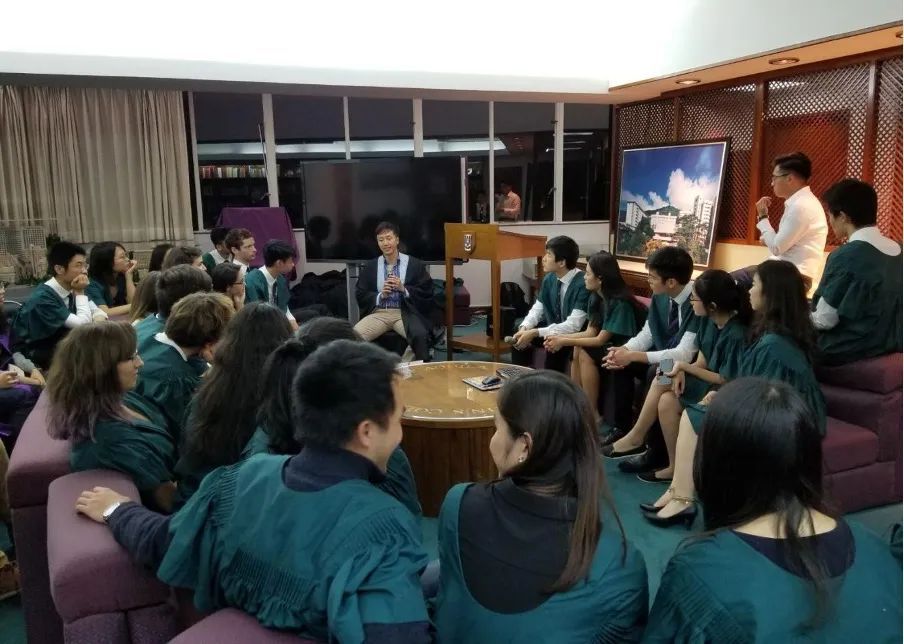
If young people are interested in this industry, I will support it, but at the same time, I will also pull back a little, because I know that the coincidence is very high, the competition is very high, and the price is not low. Before I encourage you to let go of what you already have, I also want you to know what you're going through, what you're sacrificing, what you're trying, and what if you don't succeed. I think the responsibility of middle-aged people is not only to ignite the fire of young people, but also to tell young people how to face if they can’t chase their dreams. The time and cost of delay also need to be calculated, and the overall balance must be balanced. It won't hurt too much either. This is what I want to share with young people now.

Note 1: The International Committee of the Red Cross introduces the International Committee of the Red Cross (French: Comité International de la Croix Rouge, CICR; English: International Committee of the Red Cross, ICRC), a humanitarian organization established in 1863, based on the principle of neutrality, impartiality and independence negotiated with all parties to conflicts in order to gain maximum confidence and in exchange for maximum space for them to protect and assist victims of conflict and armed violence around the world. Unlike the Red Cross and Crescent Societies of various countries, the ICRC's responsibilities are mainly derived from the 1949 Geneva Convention, and it should also develop combat methods, and is responsible for urging governments to revise humanitarian law. The organization is one of the most widely recognized in the world and has been awarded the Nobel Peace Prize three times in 1917, 1944 and 1963. There are about 17,000 employees in more than 80 countries around the world, most of whom are local employees. Note 2: What are the Geneva Conventions The Geneva Conventions (1949) and their Additional Protocols (1977) are the main treaties that make up international humanitarian law (or the law of war) and are designed to protect persons who have not participated in or have withdrawn from hostile combat. The Convention restricts the actions of the belligerents in hostilities, for example, attacks should be directed only at military objectives; the killing or wounding of surrendering persons or persons hors de combat is prohibited; attacks on symbols associated with the International Red Cross and Red Crescent Movement, medical personnel, facilities, means of transport and equipment; humanitarian organizations cannot be prevented from engaging in humanitarian activities to protect and relieve civilians. Note 3: “Resolution calling for 7-day ceasefire in Syrian city of Aleppo failed in Security Council”, United Nations, 5 December 2016 https://news.un.org/en/story/2016/12/ 267262 Note 4: The children were silent, ICRC, Apr 5, 2017. https://medium.com/@ICRC/the-children-were-silent-5ad7316eb147

Written | Xi
Figure | Ye Weichang
Review|He Yiyang
WeChat Editor | Li Jingxuan
matters editor | Gigi
Around the Fire (ID: weilu_flame)

The pictures in the text are not used for other purposes without consent
You are welcome to comment below the article to exchange discussions with the Ios team and other readers
If you want to know about the fireplace and read more articles, please follow this official account and click the corresponding menu column on the official account page

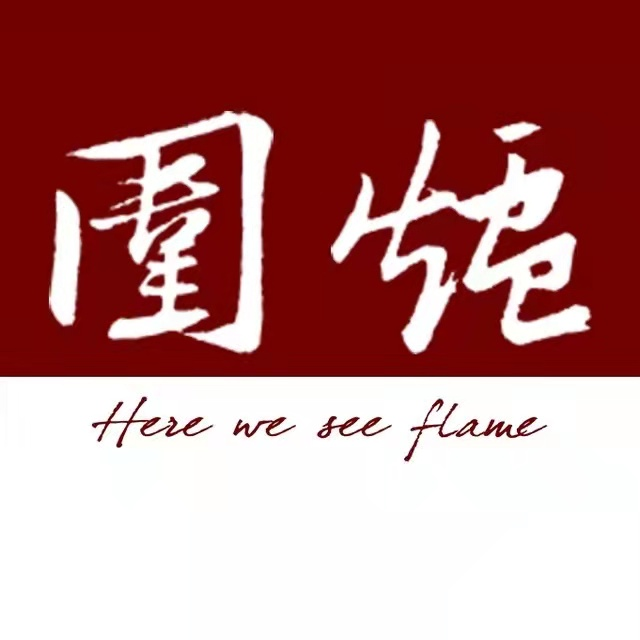
Like my work? Don't forget to support and clap, let me know that you are with me on the road of creation. Keep this enthusiasm together!

- Author
- More